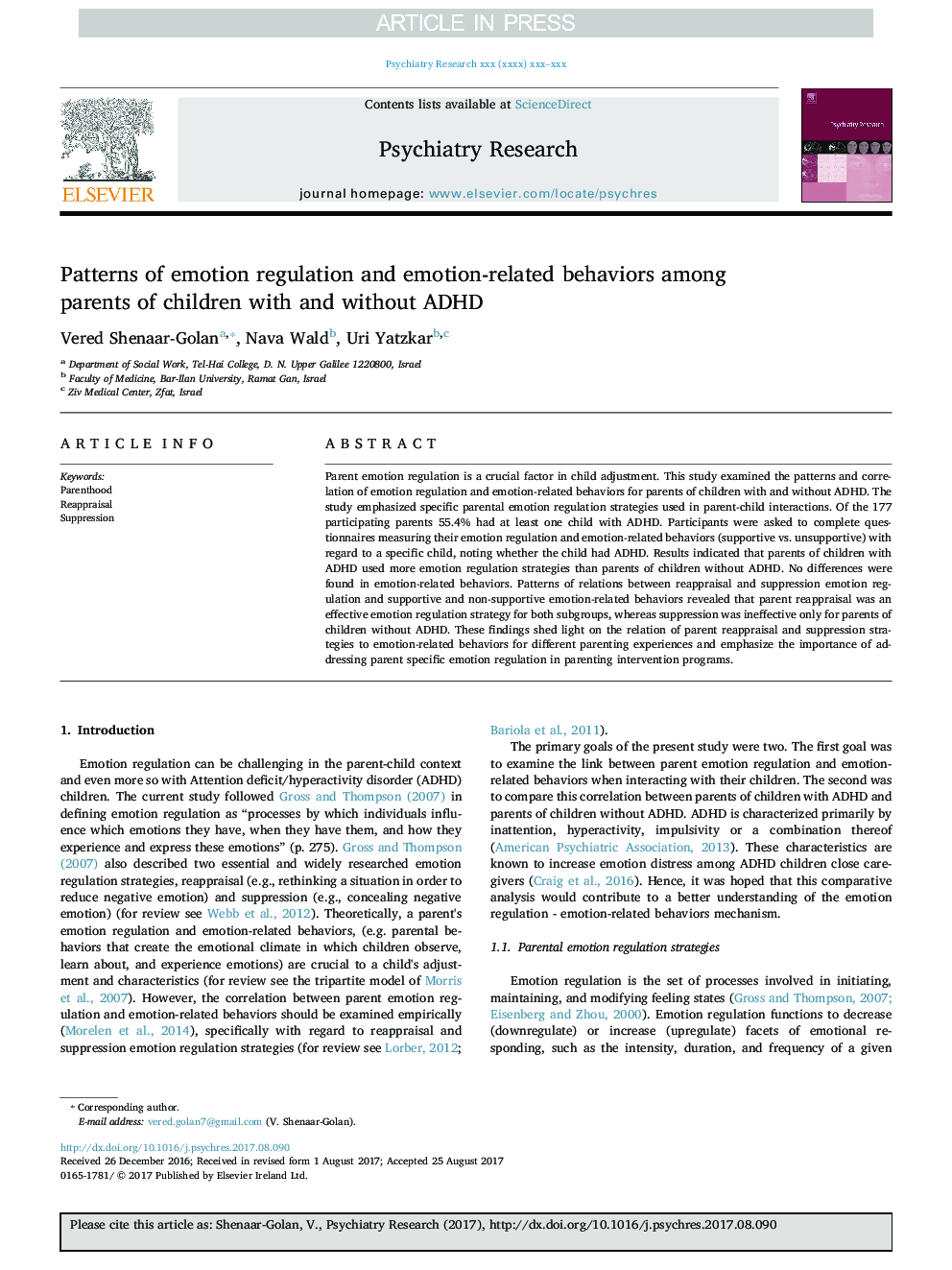| Article ID | Journal | Published Year | Pages | File Type |
|---|---|---|---|---|
| 6812195 | Psychiatry Research | 2017 | 7 Pages |
Abstract
Parent emotion regulation is a crucial factor in child adjustment. This study examined the patterns and correlation of emotion regulation and emotion-related behaviors for parents of children with and without ADHD. The study emphasized specific parental emotion regulation strategies used in parent-child interactions. Of the 177 participating parents 55.4% had at least one child with ADHD. Participants were asked to complete questionnaires measuring their emotion regulation and emotion-related behaviors (supportive vs. unsupportive) with regard to a specific child, noting whether the child had ADHD. Results indicated that parents of children with ADHD used more emotion regulation strategies than parents of children without ADHD. No differences were found in emotion-related behaviors. Patterns of relations between reappraisal and suppression emotion regulation and supportive and non-supportive emotion-related behaviors revealed that parent reappraisal was an effective emotion regulation strategy for both subgroups, whereas suppression was ineffective only for parents of children without ADHD. These findings shed light on the relation of parent reappraisal and suppression strategies to emotion-related behaviors for different parenting experiences and emphasize the importance of addressing parent specific emotion regulation in parenting intervention programs.
Keywords
Related Topics
Life Sciences
Neuroscience
Biological Psychiatry
Authors
Vered Shenaar-Golan, Nava Wald, Uri Yatzkar,
